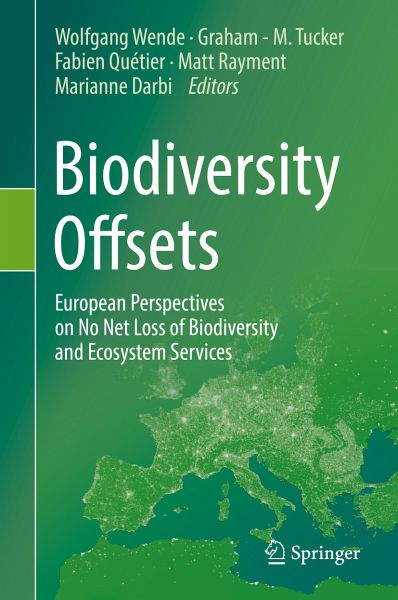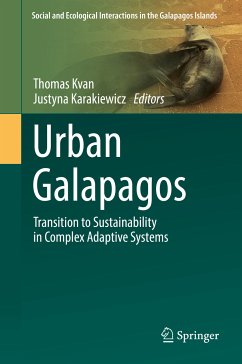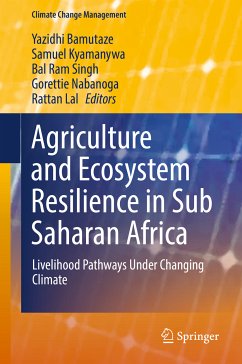
Biodiversity Offsets (eBook, PDF)
European Perspectives on No Net Loss of Biodiversity and Ecosystem Services
Redaktion: Wende, Wolfgang; Darbi, Marianne; Rayment, Matt; Quétier, Fabien; Tucker, Graham - M.
Versandkostenfrei!
Sofort per Download lieferbar
80,95 €
inkl. MwSt.
Weitere Ausgaben:

PAYBACK Punkte
40 °P sammeln!
This book deals with the new concept of biodiversity offsets. The aim of offsetting schemes is to achieve no let loss or even net gain of biodiversity. Offsets obey a mitigation hierarchy and reflect the precautionary and polluter-pays principle in regard to project impacts. Readers gain insights into current debates on biodiversity policies, with top experts outlining theoretical principles and the latest research findings. At the same time the focus is on practical application and case studies. Today there is a lively international discussion among practitioners and scientists on the optimal...
This book deals with the new concept of biodiversity offsets. The aim of offsetting schemes is to achieve no let loss or even net gain of biodiversity. Offsets obey a mitigation hierarchy and reflect the precautionary and polluter-pays principle in regard to project impacts.
Readers gain insights into current debates on biodiversity policies, with top experts outlining theoretical principles and the latest research findings. At the same time the focus is on practical application and case studies. Today there is a lively international discussion among practitioners and scientists on the optimal legal framework, metrics and design of habitat banks to ensure the success of biodiversity offsets and to minimise the risks of failure or misuse. Contributing to the debate, this volume presents the activities and practices of biodiversity offsetting already implemented in Europe in selected EU member states, and the lessons that can be learnt from them. Readers may be surprised at how much experience already exists in these countries. A further aim of the book is to offer grounded insights on the road ahead, and foster a more intensive and fruitful discussion on how offsetting can be extended and improved upon, so that it becomes a key and effective component of Europe's biodiversity conservation policy framework.
Readers gain insights into current debates on biodiversity policies, with top experts outlining theoretical principles and the latest research findings. At the same time the focus is on practical application and case studies. Today there is a lively international discussion among practitioners and scientists on the optimal legal framework, metrics and design of habitat banks to ensure the success of biodiversity offsets and to minimise the risks of failure or misuse. Contributing to the debate, this volume presents the activities and practices of biodiversity offsetting already implemented in Europe in selected EU member states, and the lessons that can be learnt from them. Readers may be surprised at how much experience already exists in these countries. A further aim of the book is to offer grounded insights on the road ahead, and foster a more intensive and fruitful discussion on how offsetting can be extended and improved upon, so that it becomes a key and effective component of Europe's biodiversity conservation policy framework.
Dieser Download kann aus rechtlichen Gründen nur mit Rechnungsadresse in A, B, BG, CY, CZ, D, DK, EW, E, FIN, F, GR, HR, H, IRL, I, LT, L, LR, M, NL, PL, P, R, S, SLO, SK ausgeliefert werden.












